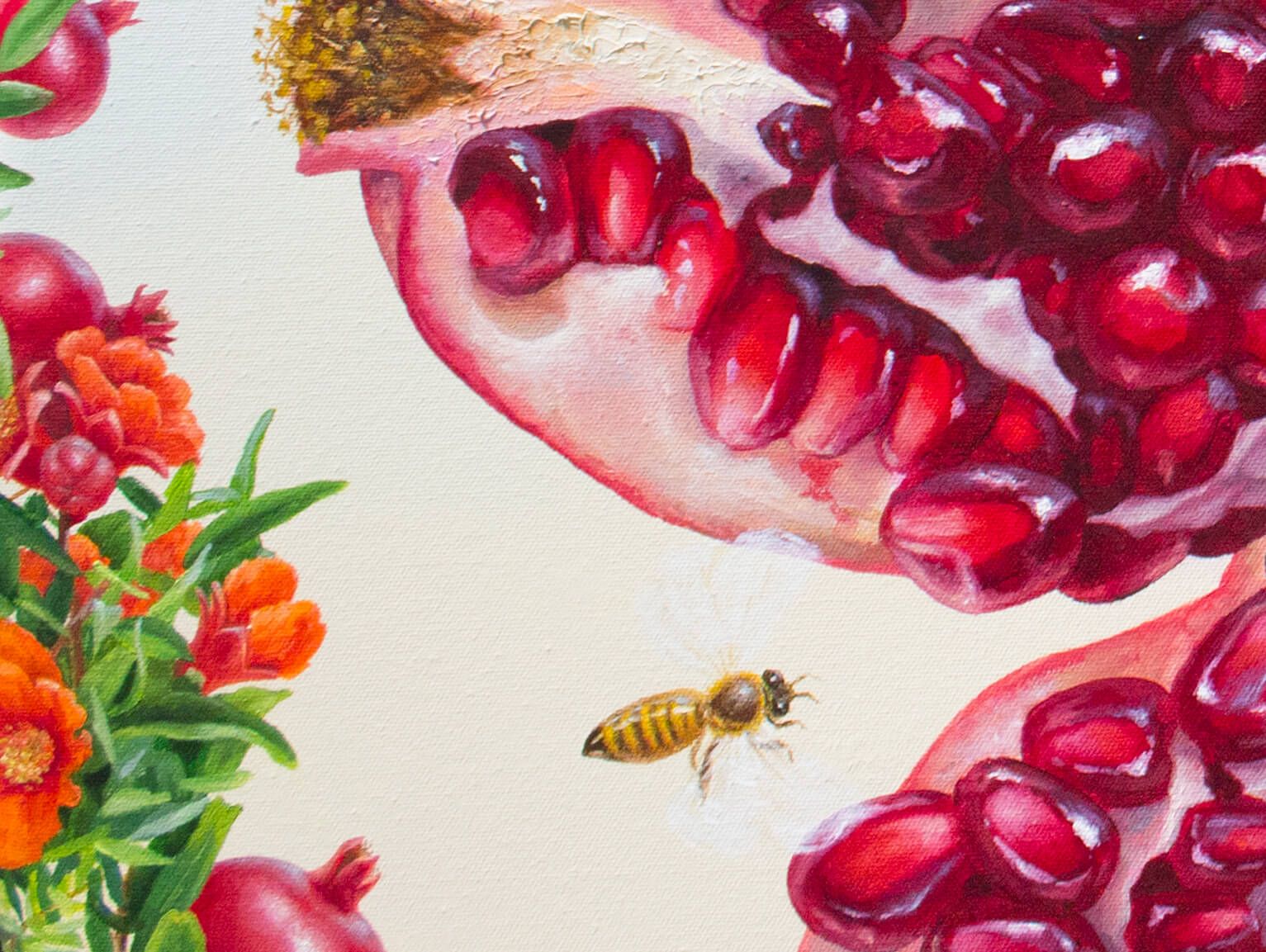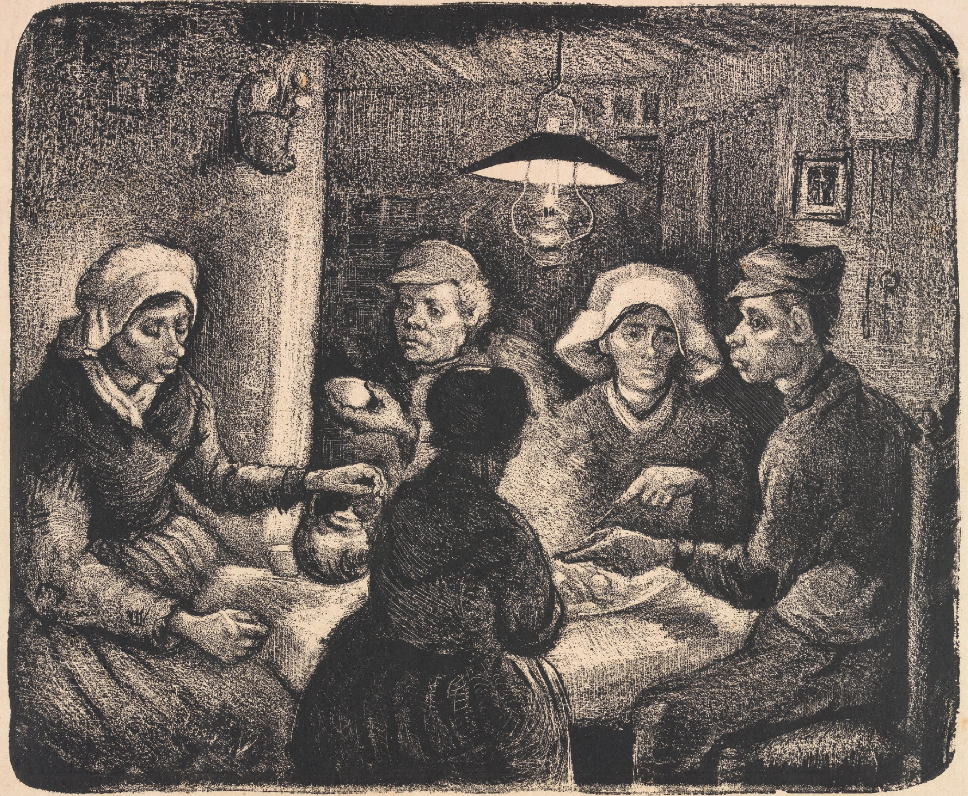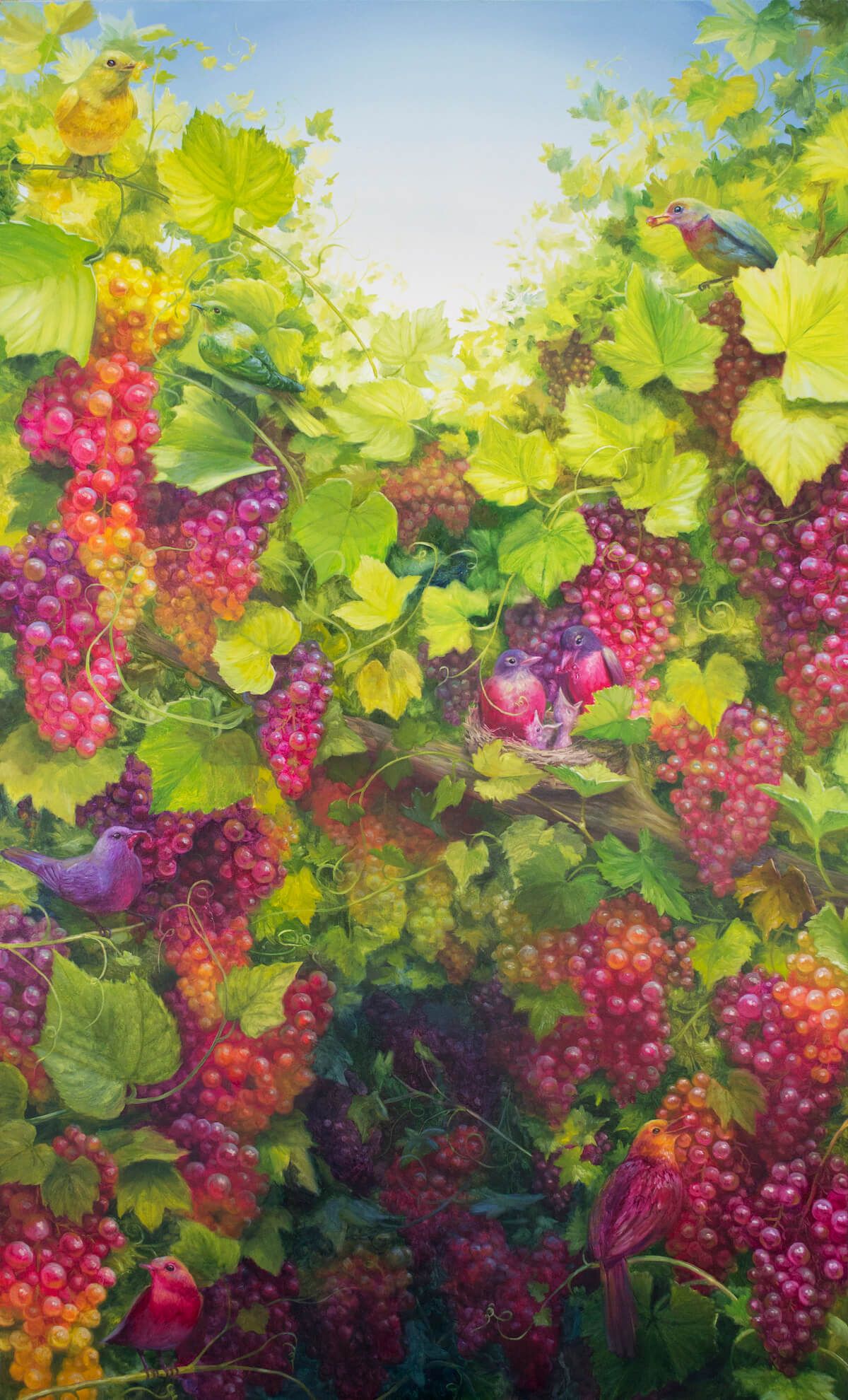ALBAIK - Food of the People
The story of ALBAIK
How does a simple idea, a simple food place, turn into a cultural icon?
Whenever we eat one of their meals and feel how it is suffused with love, we wonder about the secret behind the ALBAIK Mission - "Available To All" - and how it resonated with the public. Today, we reflect upon one of the projects that captured the hearts of people from various backgrounds, as one of its Founders shares and enlightens us with its history, its mission, and its vision.
Eng. Rami Shakour Abu Ghazaleh opens up to Ithraeyat magazine and shares the story behind ALBAIK, from the people and the heart behind it, as well as the various turning points that shaped this 50-year-old Saudi story and the values that drove it. From pilgrims to residents to visitors to the country, a visit to ALBAIK, and the highly guarded ingredients of its famous garlic sauce is one of those cherished memories of a culinary type. Peppered with light humor and charm, Mr Abu Ghazaleh, throughout the interview, would reference his dedicated working team for the lasting success of the business.
ALBAIK was founded by my late father. He used to work for Aramco, in the Eastern Region, in the early Fifties, and then for Dammam Railway. In the early Sixties, he and my mother decided to move to Lebanon and ventured into entrepreneurship. From 1964 to 1973, he struggled to come up with any innovative business ideas, so they decided to fly back to Jeddah and start some kind of business there. However, ALBAIK was not even in their thoughts at that time.
Then, my mother Faryal, May Allah protect her, said one day: "Shakour, why don’t we open a clean restaurant that offers clean and high-quality food that people will trust?" He consulted his friends, and they showed great enthusiasm for the idea. He was really excited about the idea and opened a restaurant, naming it "Broast." It was the first restaurant in the Kingdom with this name, and that was in 1974. Unfortunately, one year later, he got cancer and succumbed to the disease in 1976, before being able to witness the fruits of his hard work and how they are paying off today.
He used to work by himself at the restaurant, every day, as his motto in life was: "Learn First and Work Later." We still adhere to this concept in everything we do. Knowledge comes first - you have to hold the right knowledge, then put it into practice and share it with others.
He used to cook and serve customers himself, and people at that time did not know what fried chicken was all about, so he used to come back home upset, wondering to himself: "Why don't people come to the restaurant?" Two days before he passed away, he received a call at the hospital, and the caller told him, "Shakour, people are lining up for your food!" At least he died feeling over the moon that his idea had finally paid off.
This is our main motive – for us as engineers – we could have simply said: How are two restaurants going to help us? We thought of working as engineers and then establishing a contracting company," like everyone was doing at that time. However, we were adamant, especially my brother Ihsan, about continuing our father's work and taking it as far as we could, hoping that he might feel our success.
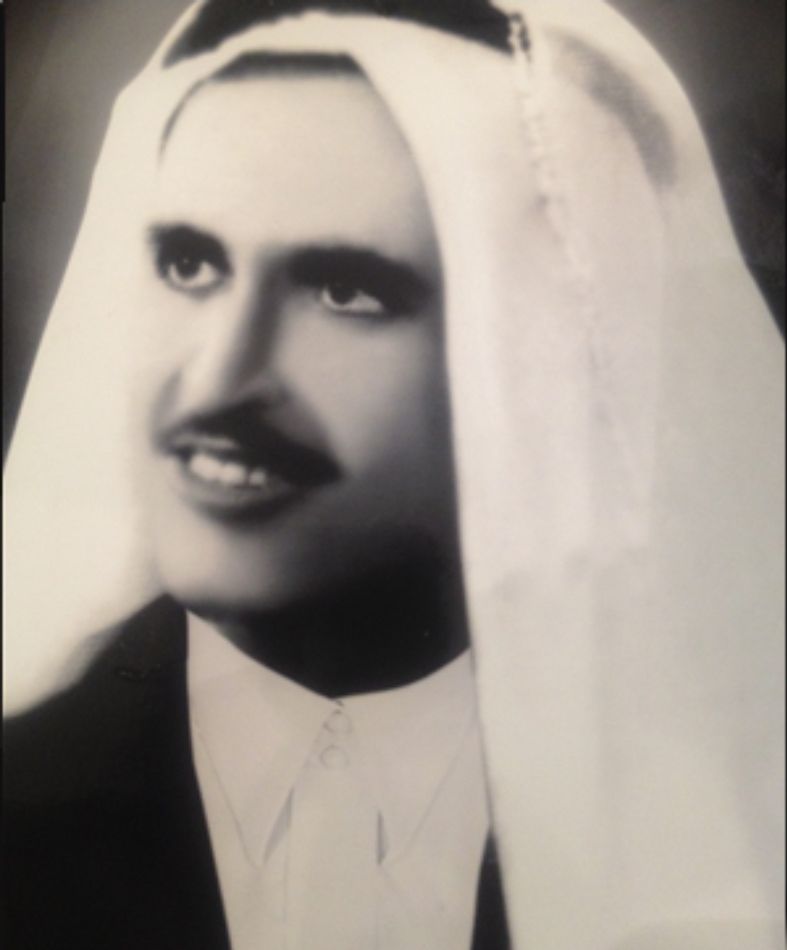
ALBAIK founder Shakour Abu Ghazaleh
I believe that one should maintain a harmonious balance between spirit, mind, heart, and body, and it is essential to nurture each of them equally. If you do not nourish your soul in the right way and with the right sustainability, and if you do not nourish your heart, mind, and body in the same way, an imbalance will result.
In my opinion, art is the unique way in which a person combines these four aspects to express himself and his ideas in a distinct manner that is able to enrich the lives of others. Since our work is about "People Serving People," the art lies in our senses; that one can better understand one’s colleagues and anticipate customers' needs before they speak.
The story started in the late Seventies, when my brother Ihsan developed the first logo for the restaurant. However, within a few years, we found that everyone was imitating the logo! In Jeddah alone, more than 400 restaurants were serving broasted chicken and using our logo. We weren't, at that time, knowledgeable about trademark registration laws. We decided to redecorate the restaurants and register our trademark to prevent anyone from copying it.
At first, Ihsan started developing an idea for the logo with a specialized consultant from France. However, the consultant was unable to come up with the details we wanted. So, Ihsan decided to do it all on his own and develop the "Chick" you see today on the logo. We then came together as a family, looked at this character, and wondered what to name it, and everyone shared their wondrous ideas: such as "Chick" and "Basha…" However, we chose "ALBAIK" since it sounded nice and gave off a vibe of gentleness, suggesting he is a person of some standing.
We registered the new logo in the Kingdom, only to discover that competitors overseas were imitating it. We registered it first in Jordan and Egypt. Today, the logo is registered in more than 85 countries. We also have a legal department, diligently safeguarding our logo against any unauthorized use. Unfortunately, we have many legal disputes all around the world and we monitor all markets to make sure our logo maintains its ownership and originality. However, it is not the diner's responsibility to consider such details; rather, we believe it is our duty to protect this logo with everything we have, to optimally represent the Kingdom the world over.
Back in 1984, when we started researching, the original logo itself was very complicated. Being an engineer, my brother Ihsan dived into the specifics to come up with this design. If you look at the eyes, he said: "they should be smiling, and the cheeks should be big and cheerful." Every detail aimed to give a sense of happiness. You see that the Chick is bowing its head a little, out of respect and appreciation for people as part of serving them, and he is putting his hand up to his hat, to welcome them.
In 2008 and thereafter, we did our research, and we asked people without them looking at the logo: "What is the first thing you remember about "ALBAIK"?" The first answer was: "The "Hat," as it is the element that is most deeply etched in their minds. As people were remembering only the hat, we said to ourselves that the younger generation in the Kingdom, which makes up around 70% of the population, values simplicity, not detailed logos, though still they love the Chick.
We worked with experts until we came to this conclusion: As people tend to remember only the hat, we have to make it simple and keep the lines memorable lest we lose the Chick; it represents part of our project's culture. So, we decided to keep it as the iconic quality assurance symbol of our brand. However, the new logo—the one we started working on 10 or more years ago—will be the main logo.
When it came to choosing the logo colors, we maintained, as much as possible, red and yellow colors with a little touch of orange. The first logo was designed after our father, Let his soul rest in peace, had died, in 1978, and that one was only in red and white. Then the ALBAIK logo we are familiar with, with its red, white, and yellow colors. Today there is the current logo, which is a prominent feature of the interior design in all our branches..
I believe describing ALBAIK as the "Saudi Food Ambassador" is not correct. We may say that ALBAIK is the ambassador of Saudi catering companies. But to consider ALBAIK as the "Saudi Food Ambassador" isn't really an accurate description of the Kingdom's culture. We should think of a more accurate description to honor aphorisms we have devised and all the great efforts we have gone to with our food and cooking throughout our history.
Back to the mental image we offer to our customers, we are proud of this company and what we offer. Let us not forget that next year we will complete 50 years of serving people. This is really a great badge of honor for us. People who were four years old at the time when we opened, are now turning 54 years old, their children and families have grown up enjoying the food we serve. Let's recall our family moments "Family Friday Gathering"; a child looking at his father coming into the house; carrying ALBAIK bags, knowing that he will make his family’s day this weekend. These are unforgettable moments!
Even the Wet-Nap, we haven't changed its scent in 50 years, as this scent brings you back to memories of stories and gatherings. A Wet-Nap holds so much significance! Imagine the other details?! We attempt to preserve the legacy people have grown old enjoying! At the same time, we look for what is going to matter most to future generations, and try to optimally serve them.
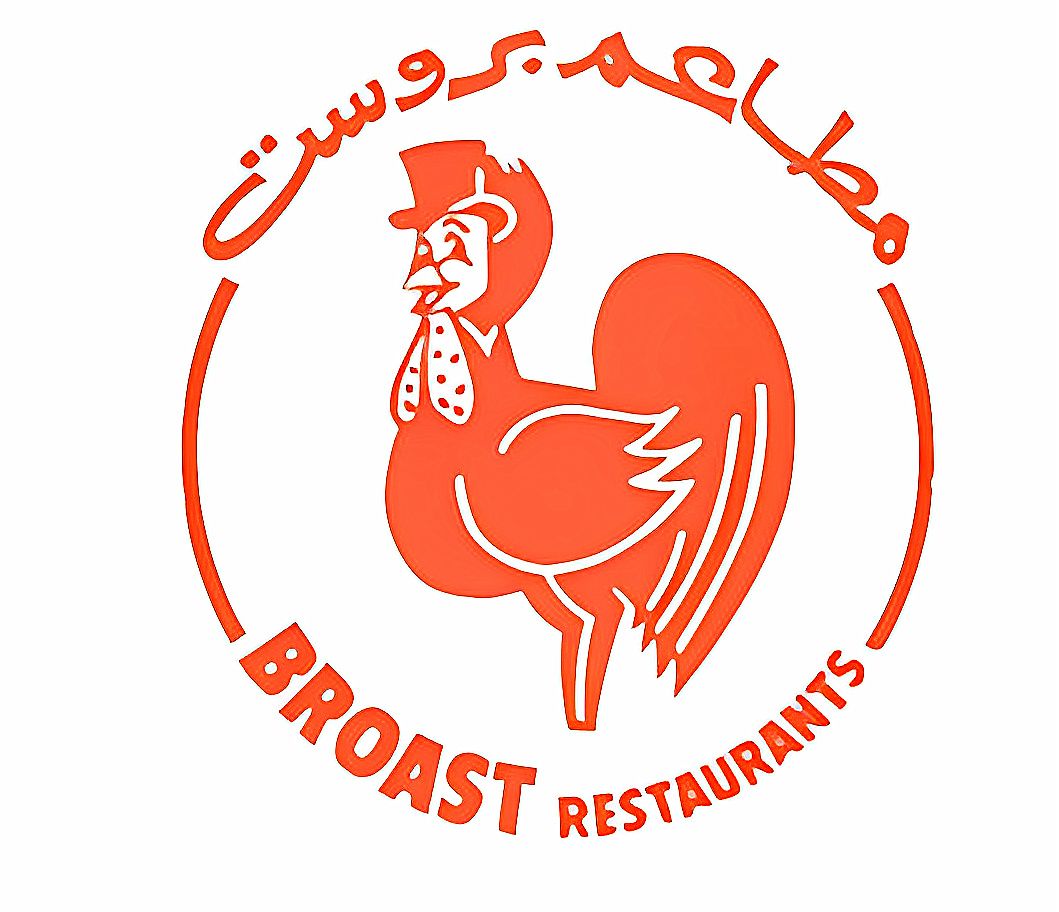
"ALBAIK" is considered the ambassador of Saudi food culture by pilgrims, tourists of the Kingdom, and the local community. - ALBAIK original logo (1970s).
In 1997, there was a big fire on the day of Arafat – in Mina – and Thanks Allah, all pilgrims were in Arafat at that time. At that time, there were no developed fire-fighting tents or tents that were prepared for centralized cooking. Thus, His Highness Prince Nayef, may Allah have mercy on him, asked the Ministry of Commerce to invite all catering companies to announce that, from that year onwards, cooking was not going to be allowed to be done inside the tents and that everything needed to be organized in a professional manner.
Only a few companies attended this meeting, and I was one of the attendees. My brother Ihsan said: "Rami, we have to find solutions to serve our country." We were the only company to participate in next year's Hajj season, as we scientifically developed building systems to meet the needs of pilgrims in a completely new way, taking into account the existing challenges.
During the first year, we had four locations in the Hajj season, and our sole objective was to deliver supplies every night to the branches, which posed a great challenge. For example, I stayed in a truck for 8 hours with the driver, trying to deliver food to a certain location, and we couldn't. Consequently, our objective to optimally serve the pilgrims has become a key reason for the development of "Al-Mashab," which became one of our key products. The right intention to act in the right way is rewarded by Allah, and certainly pays off.
There is another reason; when a pilgrim comes to Mecca or Medina, his faith, spiritual side, and his emotions hover up at the highest levels. An ALBAIK meal is unforgettable for pilgrims, and if they are reminded of anything in their country, they keep talking about ALBAIK as if they were representatives. He will also relate to his family and friends all those memories, and will advise everyone who goes to Hajj: (Do not forget to try ALBAIK)!
We have been serving pilgrims for 27 years now – all non-profit – and our prices are determined so as to be affordable to everyone during the Hajj season. Well, we suffer a significant loss in most years, and if we have any profit, we give it for charitable distribution. These actions build an emotional balance in the memory of pilgrims, and thank Allah that we were and still are part of the most wonderful journey in their lives.
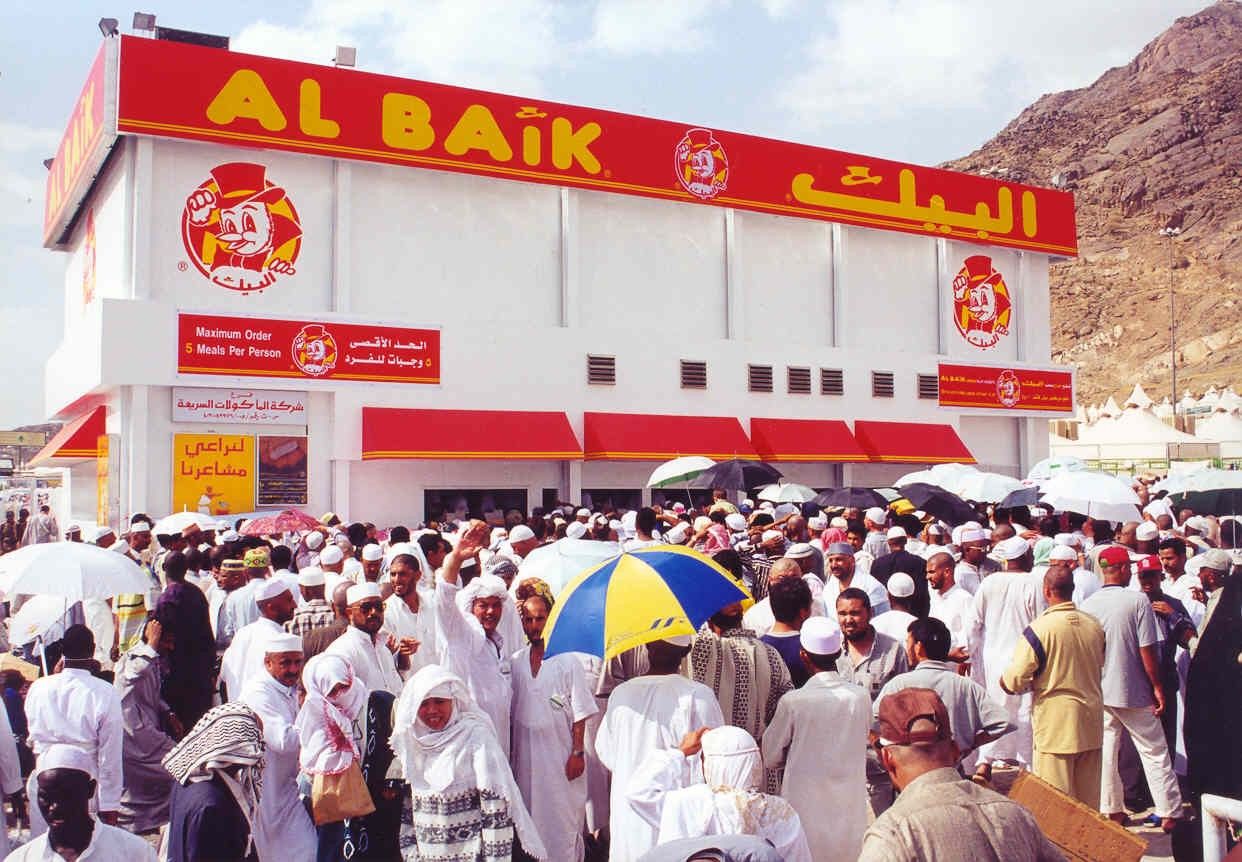
Fans of ALBAIK
"Every dish has its own story, and our values should drive everything we develop and offer." For example: When developing the idea of the "Al-Mashab," we looked around the world at the chicken nugget and how people love it. In 1998, we analyzed the nuggets around the world and found that they consist of minced chicken. As we are very familiar with the food industry, we know that minced meat allows the opportunity to add anything to the mixture, so we set a standard for ourselves; the fillet shall be whole white (not minced) meat, so the mother is sure about the food she is serving to her young children. We decided that if this was not going to be possible, we wouldn't do it.
As there was no one around the world who was properly qualified to serve this standard, my brother Ihsan developed a new process dedicated solely to making (Al-Mashab). At that time, the other firms condemned the idea, saying: What are you doing? This is not acceptable! And do not call it "nugget" because (nugget) is based on the idea of mincing the meat and then selling it. You cook the meat in a way that no one in this world does! However, we insisted on our idea and because our purpose was to do the right thing, no matter what the challenge was, "Allah will facilitate everything for us."
As for the "sandwich," to put it on the menu required changing the existing design of all our restaurants. Afterwards, customers requested it. My brother Ihsan and I were keen to keep the project strictly confidential. We developed the dish and the designs without anyone knowing what we were doing. Until we went to the marketing company and told them: “We need an advertising campaign, but we can't tell you about the product!" They came up with an idea of an advertising campaign saying: (Here, what you suggested!) with an image of a comment bubble reading: (I suggest you serve a chicken sandwich!). The campaign launched without them knowing the product, and it became the best product to date.
Falafel is another story; it was developed almost 6 years ago for vegetarians and those who prefer not to eat meat. We developed it and placed it in the drawer, as its time has not yet come. After Covid-19 and the country shut down, and walking around was only allowed from the morning till the afternoon, our sales dropped down at that time, so we opened the drawer and said: "Time has come to start the breakfast business." The reason it began was different than the reason we had originally designed for it.
The customer is the key asset in product development, so we usually ask a specialized company to bring in customers of certain age groups to try what are we developing without them knowing that it is "ALBAIK," without any bias toward the idea that ALBAIK is excellent, because we need their honest and impartial opinions. Of course, when the customer rejects what we are developing, we cancel the product or redevelop it once, twice, and three times, until the customers accept it, and then we approve it. We work to achieve customer satisfaction. It makes no sense to develop a product because we like it. On the contrary, the customer is the final judge regarding the product and whether to approve it or not.
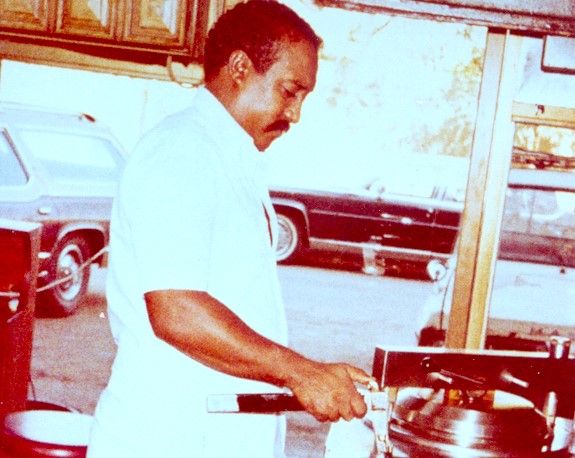
"The customer is the key asset in developing products."
Of course, I shall tell you a story!
From the beginning, when my father started his business, he did not have the opportunity to register the trademark in those days. In the early Eighties, customers did not differentiate between an original and a copycat trademark. Customers were dissatisfied with their experience, thinking that they were eating in our restaurants. So we decided to raise the level of design and services provided in our restaurants, along with continuous improvement of quality.
After redeveloping one of the branches, the contractor Rida came to us and said: "What are you doing? These are high-level designs! And your meals have been sold for SAR 10 for years! No sound man can accept this!" We replied as follows: "We are here for all people, and all people have the right to enjoy a special meal in a clean place and at an affordable price. We believe that people have the right to eat in a place where they feel respected and appreciated and with no financial pressure; an environment that we shall provide for everyone."
Marketing campaigns always focus on a certain age or income. To claim that I am there to serve everyone, this is rare and may be even a dangerous principle; no one works that way. Again, we attempted to do the right thing. In this sense, we set an objective to create value for people and not price, by setting fair value, where people feel that they take more than they give.
That's how our organization is based on quality key performance indicators (KPIs), through monitoring, metrics, and setting standards that contribute to satisfying people and building their trust in and love for us. Wherever there is a trust-based relationship, "Nothing would be easier. I am confident that you will not make a mistake, and Allah will bless your work."
This is a scientific process, developed so that we raise all possible questions before selection, and after there is a prospective location, there is another list to make sure that the location details are perfect. For example: If we choose a location, it is our responsibility to make sure that the team's accommodation is close to the location, at a certain number of minutes away, and without risks. Over time, there are laws regulating housing specifications.
We strive to keep developing demography, future market needs, population orientation, and the expansion of the city. However, we are long delayed in expanding within the Kingdom. In 1990 we opened the first branch in Mecca, in 2001 we opened the first branch in Medina and then Yanbu. However, until 2014 we did not plan branches outside these cities. We failed a lot of people in other cities, and this caused rumors and strange tales, all of which are born out of love of people.
Then we expanded to Qassim. Our expansion to Qassim had a different story, as one of the wonderful young people in Qassim performed a song on YouTube - which garnered two million views at the time. This motivated us to move forward and expand outside Mecca, Medina, and Jeddah. Qassim was the first region to expand into, as we felt the love of the people of Qassim, and it was a promising start for expanding into the rest of the Kingdom.
Actually! We delayed our expansion into other regions in the Kingdom because we made a pledge from the beginning to have a clear objective for every work we do, and to do it the right way. We reviewed our capabilities, during the Nineties. In 1990, when the Gulf War ended, we knew that all global competitors would enter the Saudi market, so we had two only options: Either we expanded into the other regions before they entered, or we established the right entity before thinking about any expansion.
At that time, the foreign competitor came with its history, knowledge, work systems, and experience of mistakes to be avoided during expansions. Thanks to our engineering expertise, my brother Ihsan and I did not only think about business, but engineering played an important role in our way of thinking. So the decision was taken that we were not ready to expand. At that time, we didn't have strong and proven work and training systems on the geographic dimension, financial power to support expansion, or factories that could transport large quantities of food to other regions. Although there was an opportunity for us, we decided to look to the long term, and not to take risks in the near term.
Some schools of thought may advise you to seize the opportunity before anyone enters the market with you, and then correct your problems afterwards! And another school of thought may say, no, establish yourself correctly and then expand. Thanks to Allah, it was the right option for us. During the entire 1990s, we got to know our competitors and their strengths; so we strengthened our weaknesses. We developed work systems and factories, and invested in young people to be able to open branches in other cities. We took our time to establish a company that could expand not only within the Kingdom, but to reach Japan and Brazil. There is no room for error, as the other parties have trust in us. Let's dive deep into the issue of trust here.
When we knew we are ready and well prepared for geographic expansion in all respects, we developed a strategy for the Kingdom. Let's take Riyadh, for example, as it was the most difficult city. How were we going to be able to enter the Riyadh market when we were about 20 to 30 years late? We were going to have to open 20 branches in one day to protect the customer from any scrambling. There is a mutual love between the people of Riyadh and "ALBAIK."
Our strategy was about gradual entry. We had to approach the market gradually, to absorb the first enthusiasm. So, we started in the Qassim region, then moved to eastern Riyadh - Al-Kharj - and then got a little closer. Our border was the ring road. We were not going to enter the main area until things settled and became very normal. That was our entry strategy.
In terms of operations, Qassim is considered the closest area to Medina, and the supply operations were smooth; for getting to Medina and then to Qassim, and so on.
There's a lot more than our belief in "ALBAIK taste around the world." As a national company, we believe that it is our duty to consider wisely the Vision 2030 launched by His Highness the Crown Prince - may Allah protect him - as it is our responsibility to deliver ALBAIK culture to the whole world. We aspire to be partners to our country in a responsible and comprehensive manner, not only with regard to "taste" but with regard to the most important of our possessions, "knowledge." How can we communicate Saudi knowledge to the world so that the whole world may benefit and learn from it?
Rather than importing knowledge from abroad, it is our duty to export our knowledge through our young men and women to the world. Today we witness this in Bahrain and the UAE. Our young men and women are the ambassadors of our country. Non-Arabs who come to ALBAIK for the first time and talk to the young man standing there serving him are surprised and ask him: Where are you from? The young man replies: Saudi Arabia. This person gets the impression that the dish is so delicious, and moreover, he admires the young man optimally representing the Kingdom.
A dear friend from an Asian country once told me: "Rami, we have lots of fried chicken restaurants in our country, but what we lack is the business model of Saudi companies, which is different from other international companies. We need to take advantage of the values you have and work from in the Kingdom to develop our companies. As for the taste, we took advantage of the fact that fried chicken and (Mashab) are not limited to a specific region. Allah has honored us with what the whole world loves and, Allah willing, we will best represent our country in its foreign expansions.
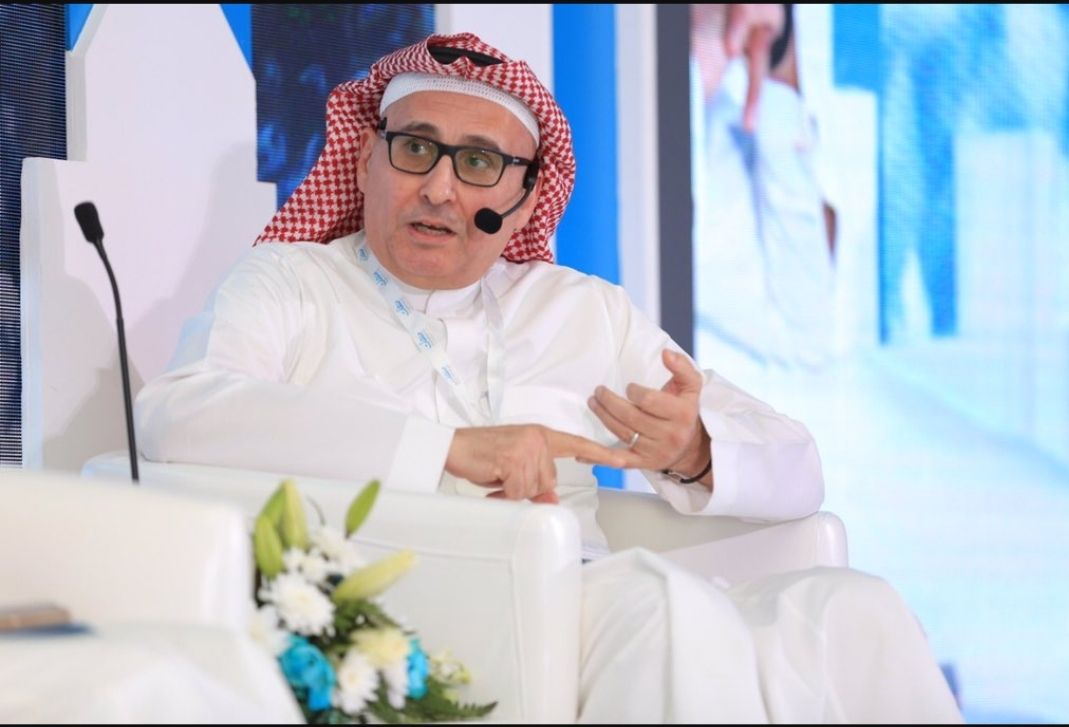
Mr. Rami Abu Ghazaleh
Ultimately, we believe that our work is about "People Serving People." This means that we cannot bring robots to serve food, and make you feel the same way as when a real person is serving you food with enthusiasm, speed, and a wide smile. Of course, our rule was always: Customer Comes First, right? We changed it a little bit and our rule is: Work Team Comes First and Customer Comes Second.
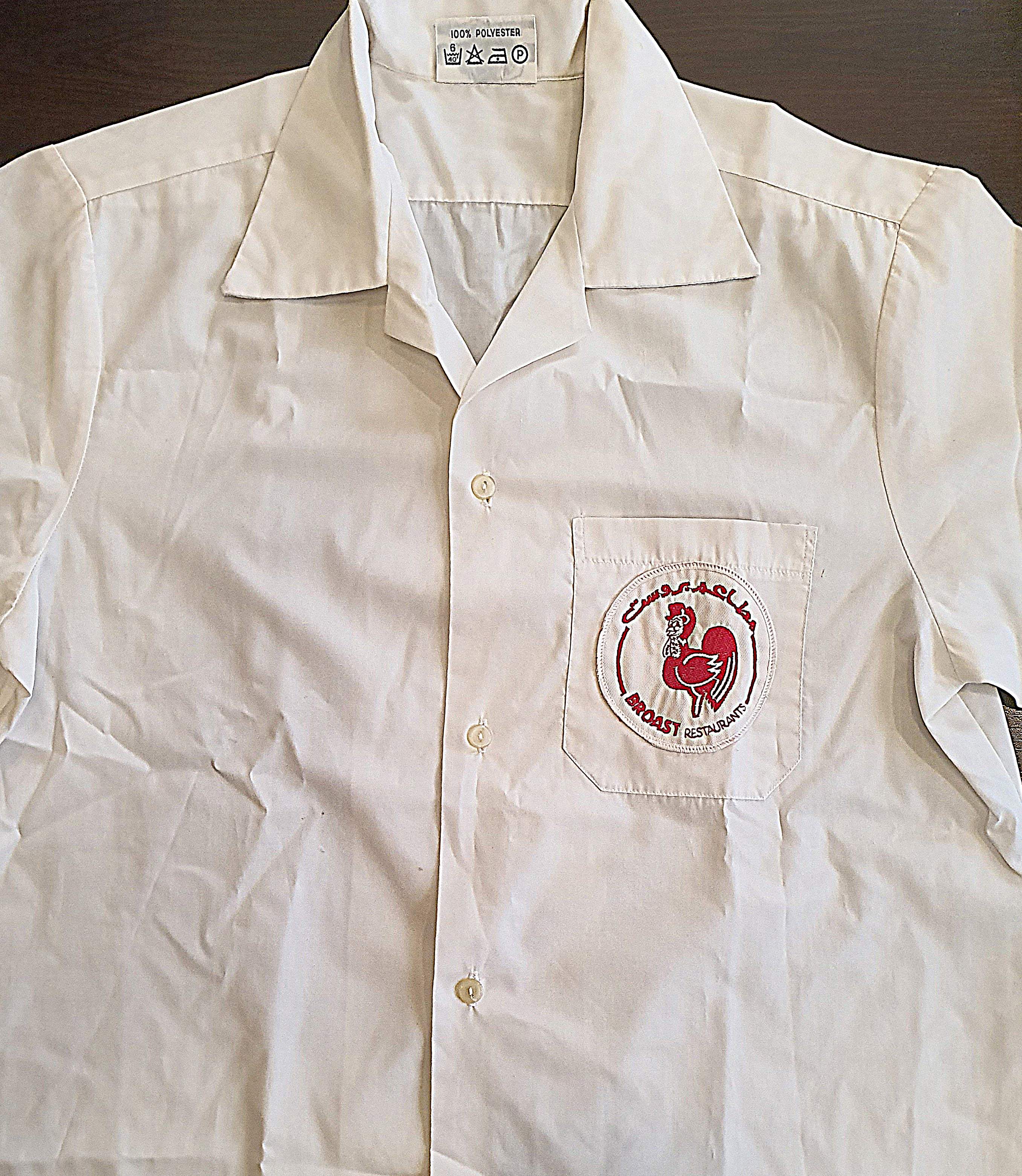
Rami Abu Ghazaleh's first uniform shirt he wore back in 1982.
Exactly, we have an exceptional team. The reason is all the points I said previously. When we don't consider the person as a worker, he feels that he is on equal footing with the owner of the company, the CEO, or his line manager. For example, serving pilgrims; what they do during Hajj season is exceptional. They work 16 to 17 hours a day while living in Azizia. A considerable strain, but no one complains, why? When we ask them, they respond: "We are serving the pilgrims." For them, this is the greatest blessing for any man in the world.
At the same time, with all this fatigue, we are with them during all Hajj days, standing, serving, cleaning and driving with them. I recall that the last time I went out on Hajj vacation was in 1997. Why? When they see their leader with them, eating and sleeping with them, and making sure that they get all the comforts he gets, "what more do they want?" They will do their work wholeheartedly.
I reaffirm, over and over, the importance of "knowledge." They must always be provided with learning opportunities – many of them started from the very beginning and now they are general managers, thanks to several years of training – and we support them to get their degrees from international universities. Many of them, who did not have the chance before, have now completed their studies. This is their company and their family, and this culture will never change – Allah willing.
I won't talk about recycling or selling used oil to specialized companies to recycle it. I will talk about an issue closer to my heart. In 1996, we started the first community program named "Little Scientists." The idea was to work with all schools in Jeddah and encourage students to manufacture devices or provide solutions that benefit the environment. The competition referees were specialized academics from King Abdulaziz University. This initiative lasted for 10 years. Each year, the winner travels to NASA in Alabama, USA, and spends a week there, with his guardian, with astronauts to train in astronomy.
Afterward, we saw government agencies launching science programs with greater potential. Then we launched the "Hero of the House" program in 2002. Every year, for a whole month during the summer vacation, we select 550 students and train them on how to change the car "tire," car oil, paint walls, do electrical and plumbing works, civil defense, and first aid. In these days, there was no one to guide them, and everyone wanted to study medicine or engineering. This program motivated many students to discover their hobbies and plan their future. Thankfully, we have trained more than 10,000 students to date, and the program is still ongoing.
In 2004, we launched an important environmental program called "Nazeeh & Wartan," the cartoon characters, and ALBAIK's environmental spokespersons, where we focused on removing waste. We worked annually on volunteer programs that help children to take care of the environment. In 2013, the Minister of Education instructed, after watching the program "Khawater" presented by my brother Ahmed Al-Shugairi, on how Japanese children clean their classrooms at the end of each school day without relying on anyone. Ahmed came to ALBAIK because of our concern for the environment.
We launched a program named "Order, Operations, and Training Together" and implemented it first in two schools; a private school and a public school. We faced strong opposition from parents, who asked "Why are our children going to clean the school? This is not their responsibility!" While the children were excited about participating. The following year, and upon order from His Highness the Minister, we provided the program in 52 schools, and then a year later to 400 schools, until we reached 2,200 schools.
Parents now share their children's experiences in tidying their rooms and making their beds, and they are responsible, even outside the house, about not throwing waste anywhere other than in its designated places. More than two million children were responsible for keeping their classrooms clean. This, in itself, trained them to be responsible for the environment, and consequently their habits changed for the better. Some of them may have included climate change among their interests. These are some appealing steps. However, the real change begins with changing people's habits around their contribution to being responsible in the face of climate change.
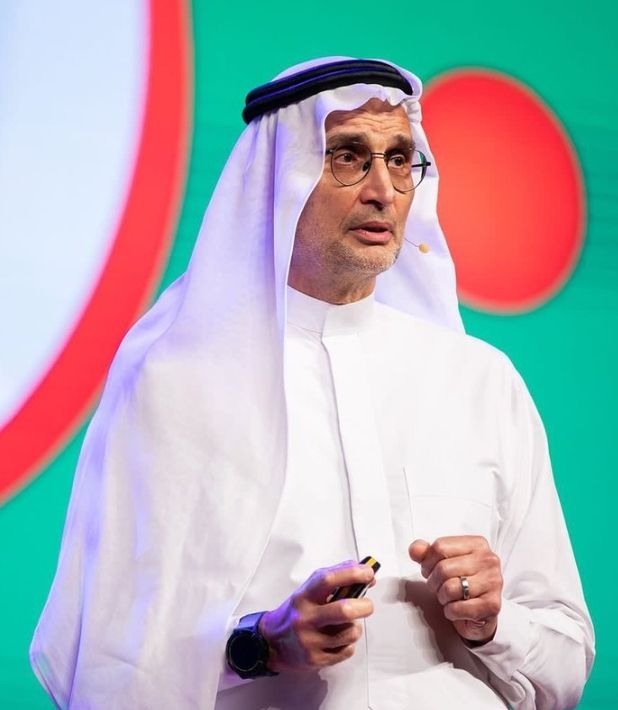
Ihsan Abu Ghazaleh.
